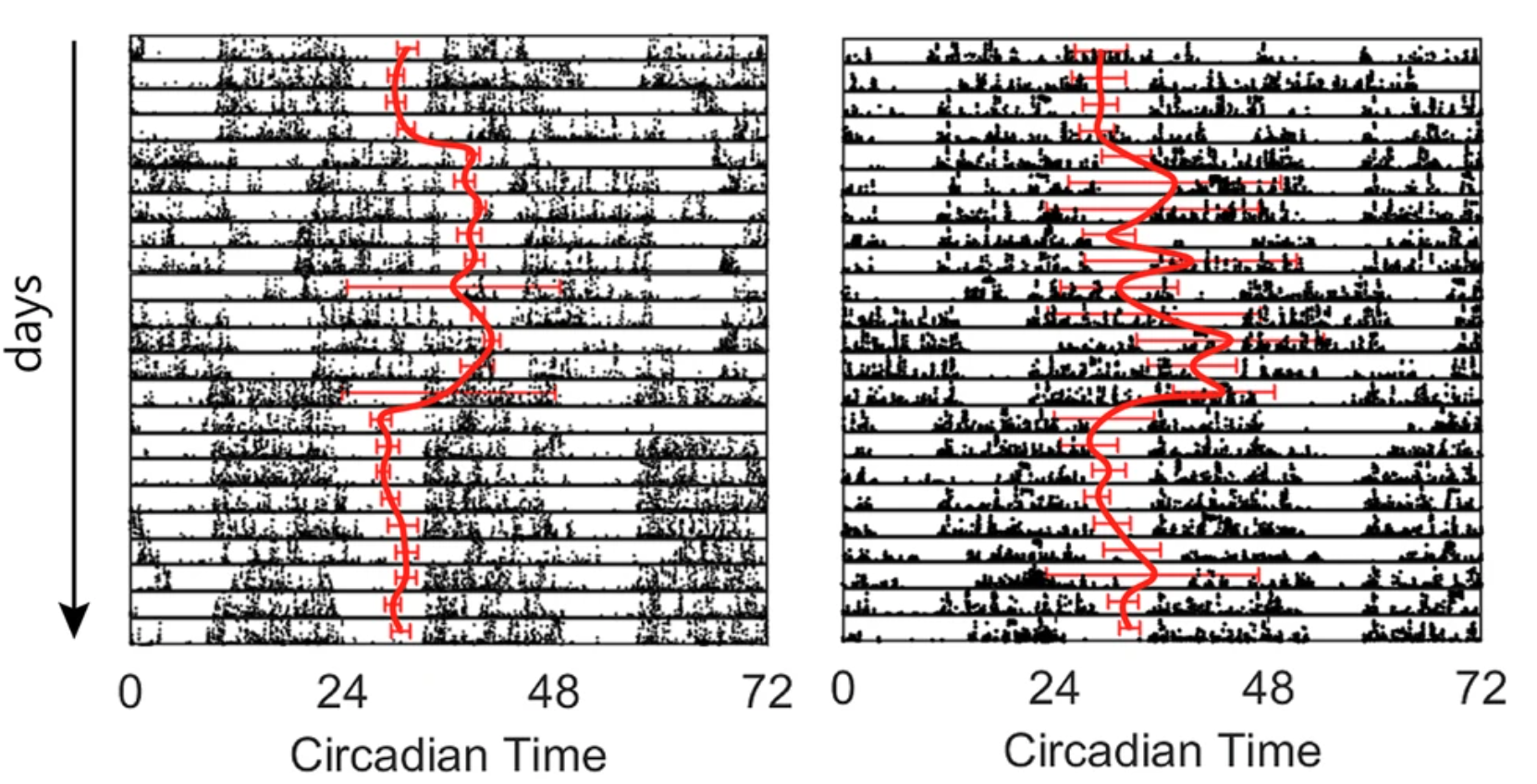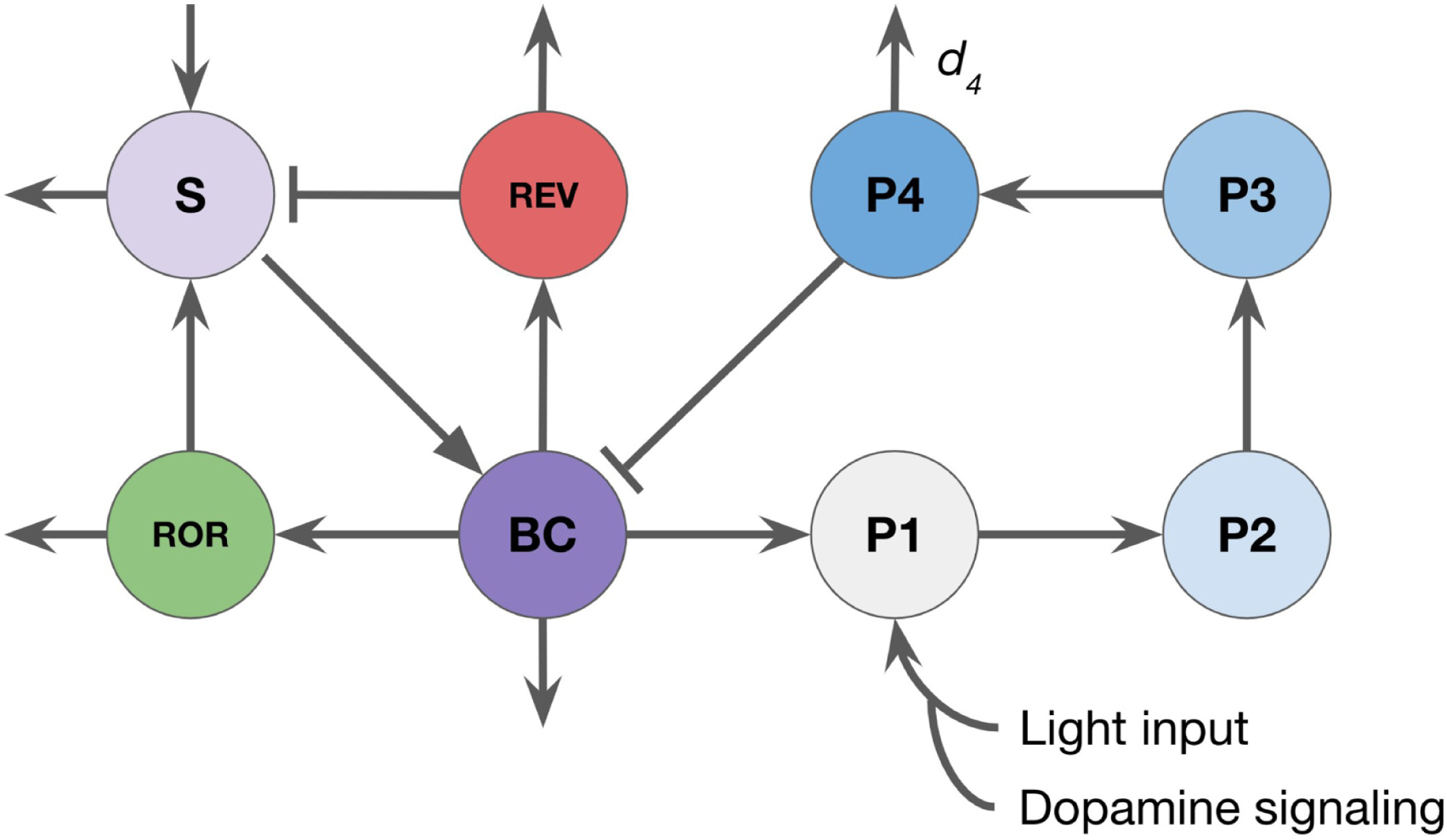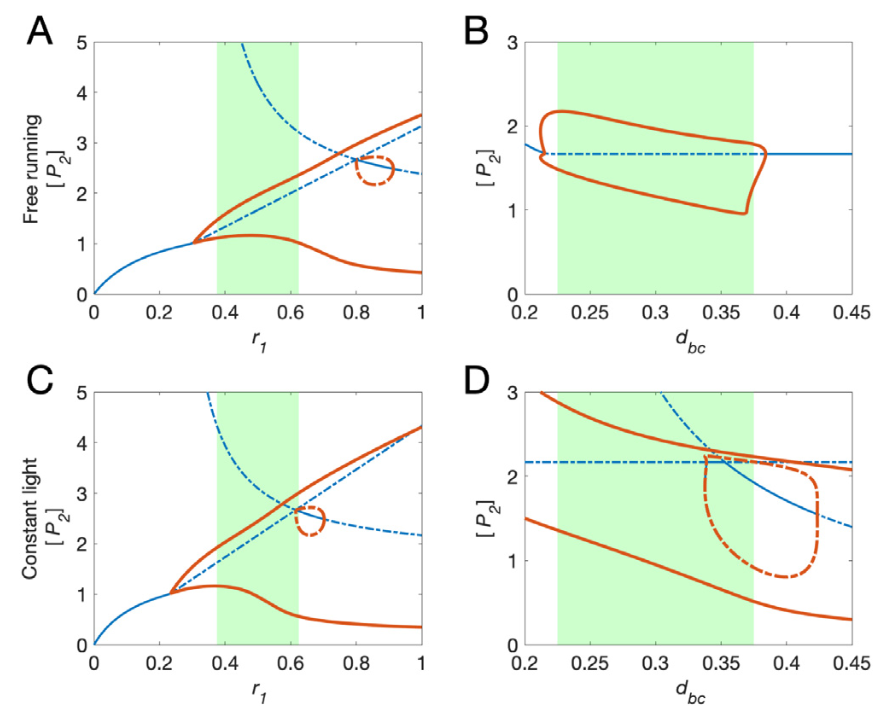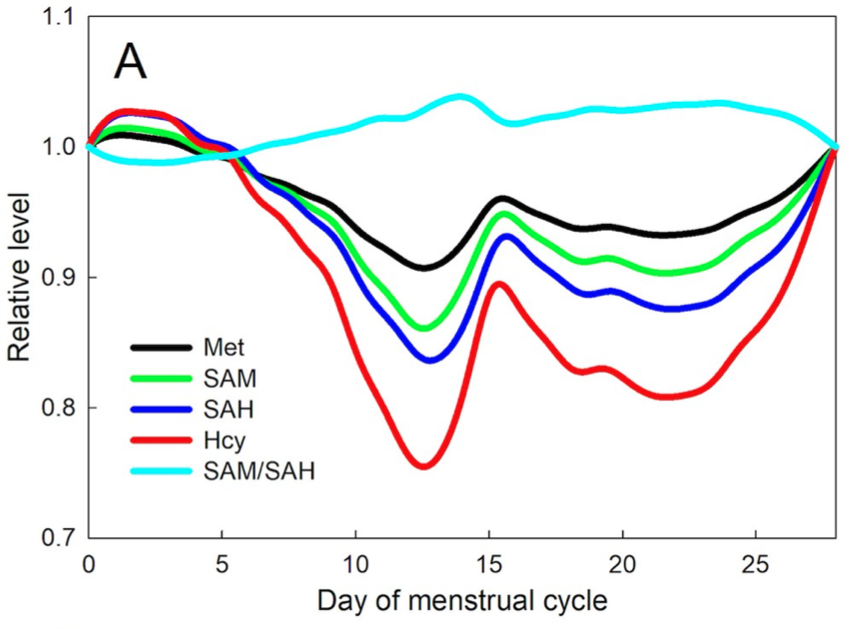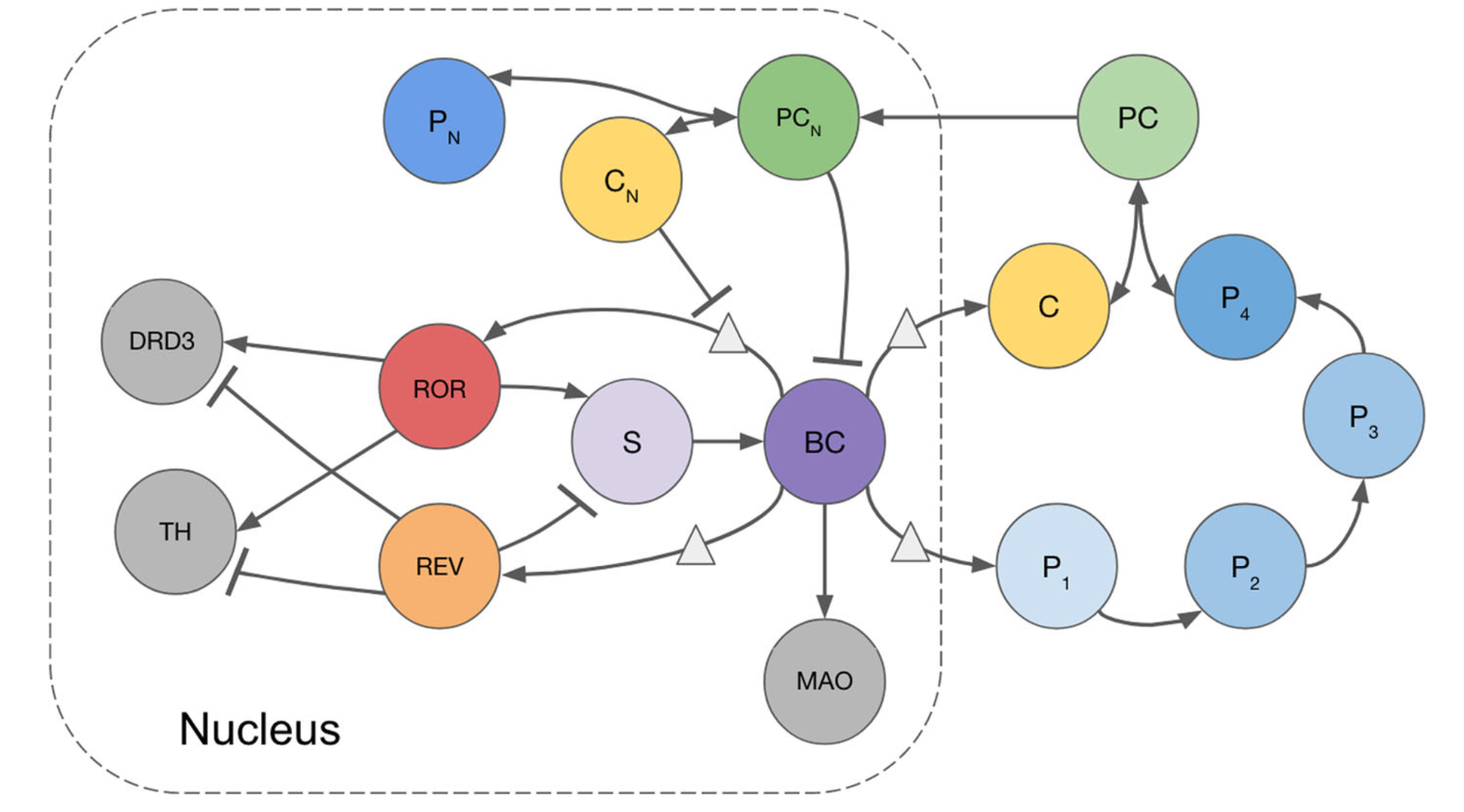Seasonal timing and interindividual differences in shiftwork adaptation
Ruby Kim, Yu Fang, Minki Lee, and 4 more authors
npj Digital Medicine, 2025
Millions of shift workers in the U.S. face an increased risk of depression, cancer, and metabolic disease, yet individual responses to shift work vary widely. We find that a conserved biological system of morning and evening oscillators, which evolved for seasonal timing, may contribute to these interindividual differences. In this study, we analyze seasonality in medical interns working shifts, revealing that summer-winter variation correlates with increased circadian misalignment after shift work. Mathematical modeling suggests that seasonal timing influences the rate of adaptation to new schedules, predicting differential effects on morning and evening oscillators. Additionally, we examine genetic polymorphisms linked to seasonality in animals and find that human variants can impact how quickly circadian rhythms respond to schedule changes. Based on our findings, we hypothesize that the vast interindividual differences in shift work adaptation—critical for shift worker health—can in part be explained by biological mechanisms for seasonal timing.
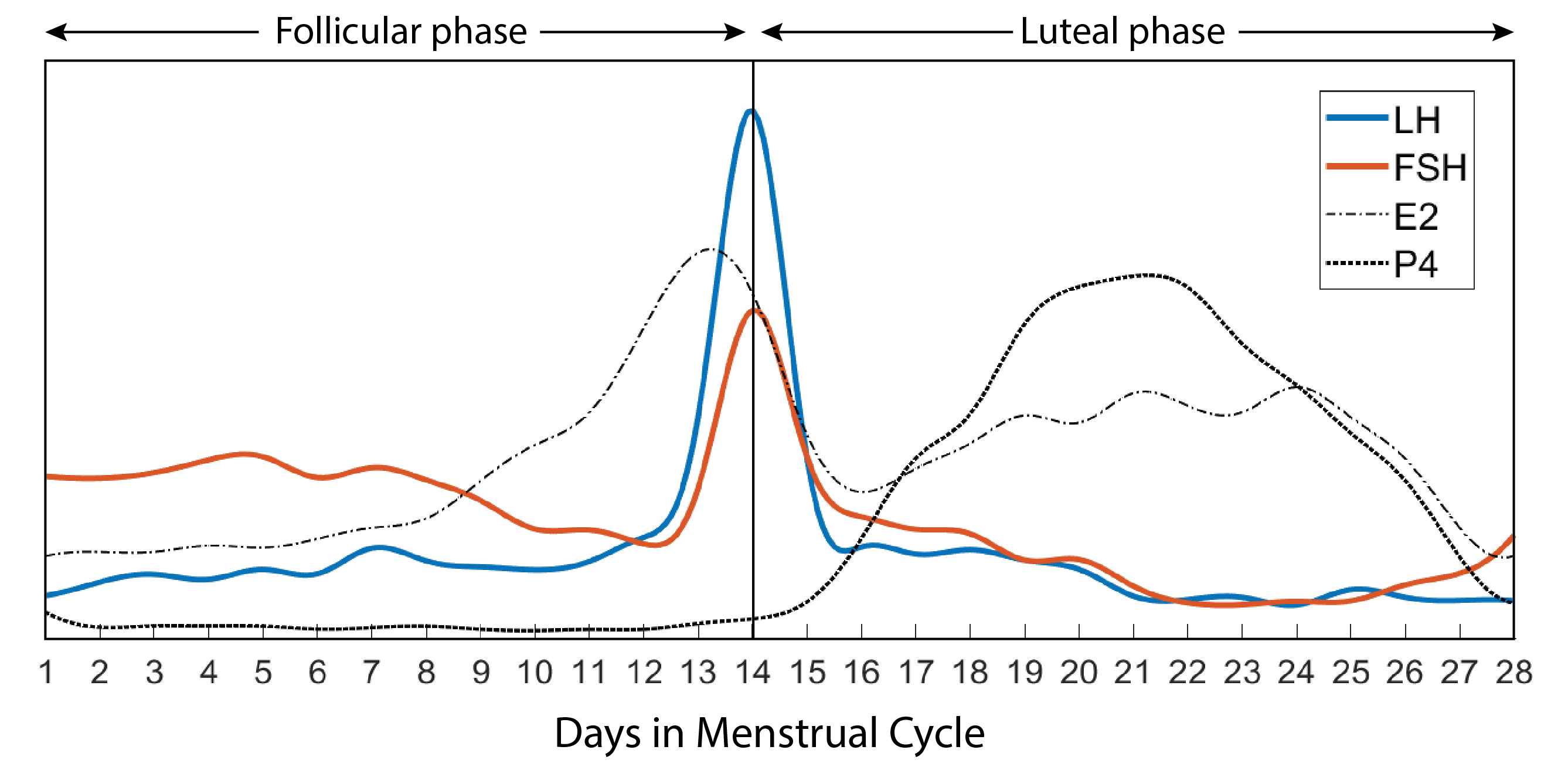 A Survey of Mathematical Modeling of Hormonal Contraception and the Menstrual CycleIn Mathematical Modeling for Women’s Health: Collaborative Workshop for Women in Mathematical Biology, 2024
A Survey of Mathematical Modeling of Hormonal Contraception and the Menstrual CycleIn Mathematical Modeling for Women’s Health: Collaborative Workshop for Women in Mathematical Biology, 2024 A mathematical model of melatonin synthesis and interactions with the circadian clockMathematical Biosciences, 2024
A mathematical model of melatonin synthesis and interactions with the circadian clockMathematical Biosciences, 2024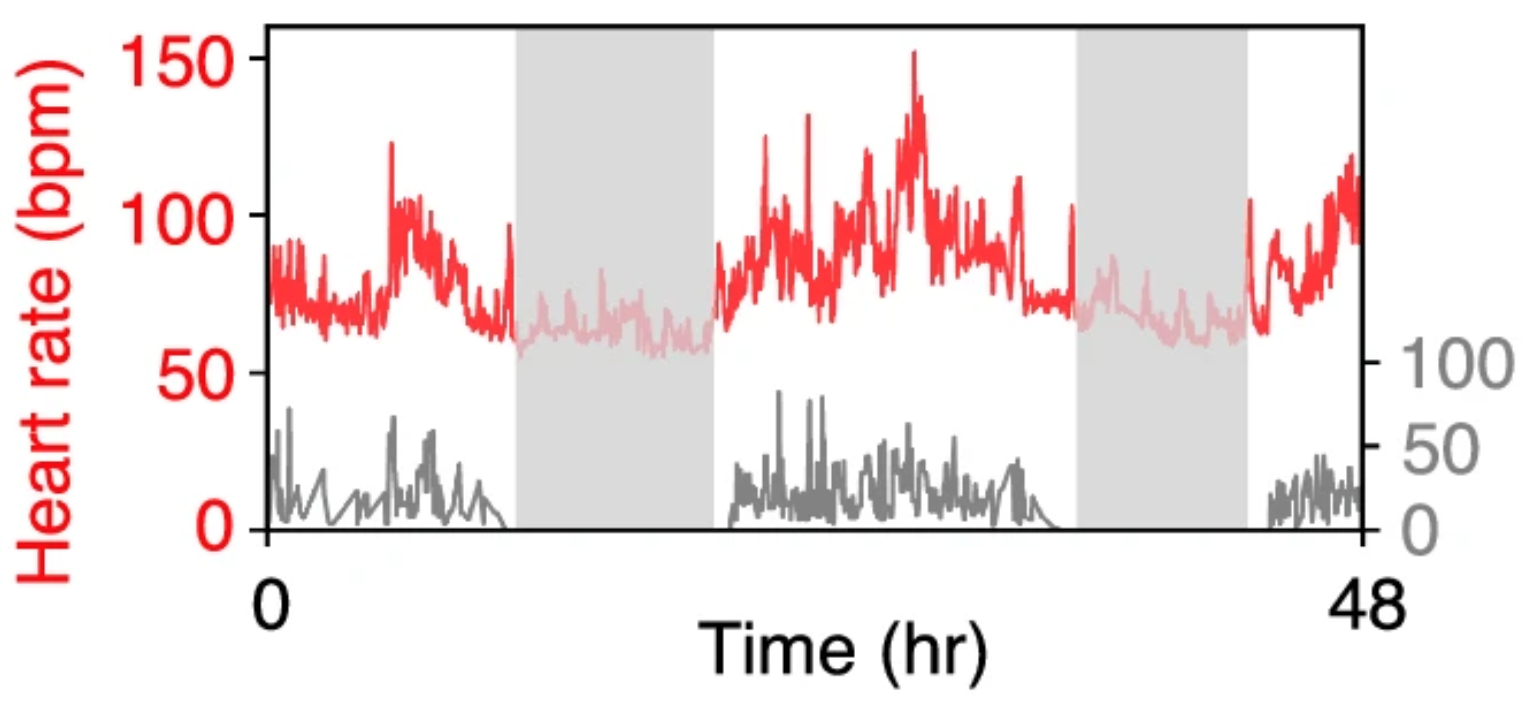 The real-world association between digital markers of circadian disruption and mental health risksnpj Digital Medicine, 2024
The real-world association between digital markers of circadian disruption and mental health risksnpj Digital Medicine, 2024
